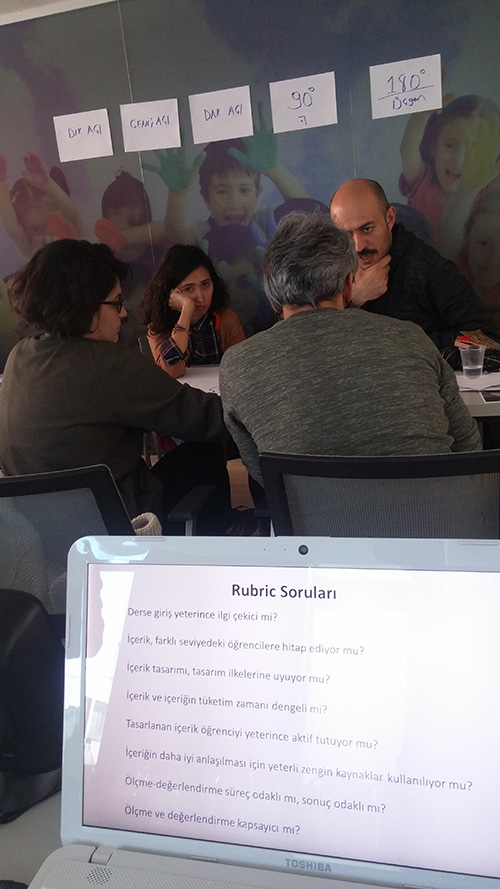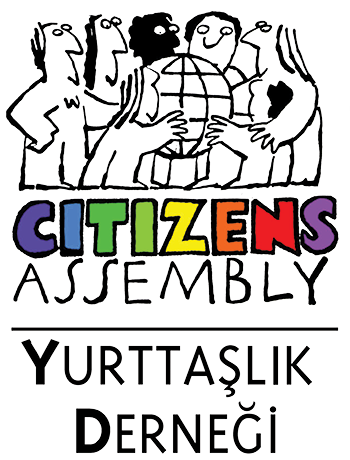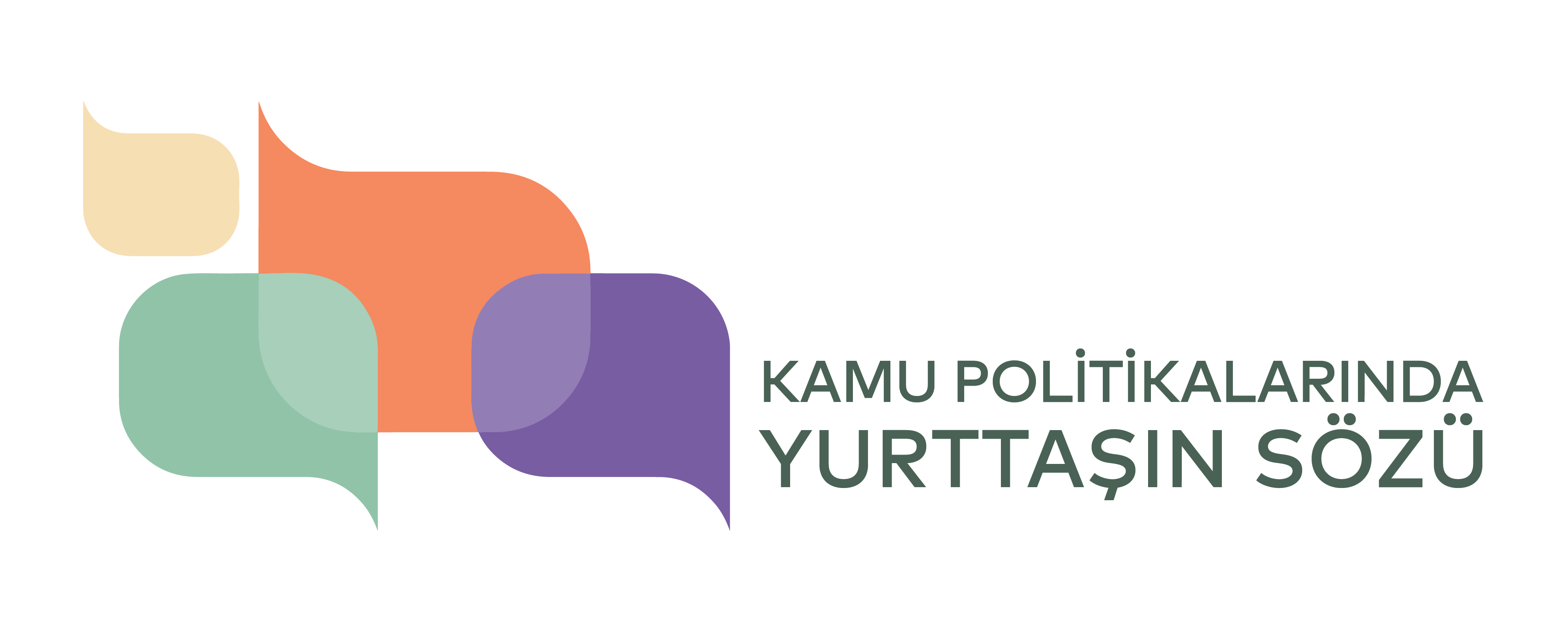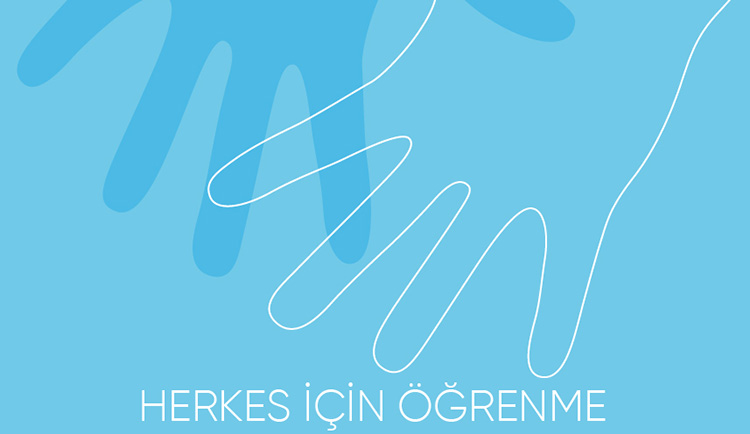Helsinki Citizens' Assembly (hCa), established in Prague in October 1990 as an international working conference, initiates Helsinki Citizens' Assembly-Turkey. Nearly a thousand representatives of civil society, from non-combatant, arms-free peace organisations working for a larger European Union and East European regime opponents, green groups, women's movements, churches and trade unions, attended the first founding meeting.

With the start of the Gulf War, we organised the ‘Middle East Peace Process’ conference with the participation of hCa European Organisation representatives.
We established the Turkish branch of the ‘Not Launching the War’ campaign, which was initiated against the US and Iraqi governments’ tendency to escalate tensions, making war more likely.

The “Peace Initiative For The Kurdish Issue”, with which we were involved, organized a conference on 15 February 1992. The conference, which followed on from a series of preparation meetings in Istanbul, Ankara and Diyarbakır, aimed to suggest democratic ways to prevent a possible escalation of conflicts among civilians, as had happened in the Balkans.
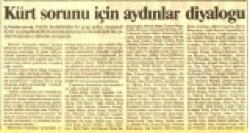
The “Peace Initiative For The Kurdish Issue” which was initiated in the beginning of the 1990's to suggest possibilities for a peaceful solution to the Kurdish issue, visited the region together with international delegation representatives during Newroz 1992. They entered into dialogue with representatives of civil society organizations and newspaper managers in Istanbul and Ankara.
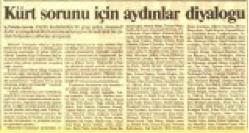
We published our book, "Peace Initiative for the Kurdish Issue" (Kürt Sorunu İçin Barış İnisiyatifi), in order to compile the debates occurring within the democratic initiative started for the Kurdish issue.
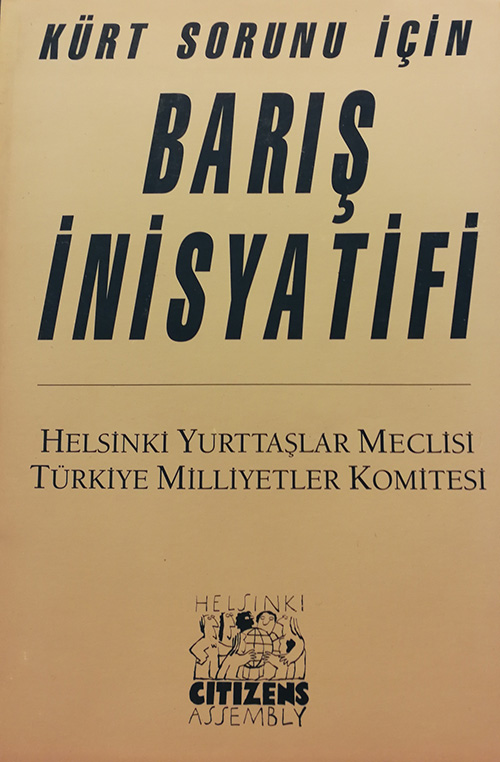
As members of Helsinki Citizens Assembly-Turkey, we participated in the “Peace and Integration in the Balkans” conference in Ohrid, Macedonia, together with representatives of 12 municipalities from Turkey, the Yugoslavia Immigrants Solidarity Association, the Chamber of Medical Doctors and Human Rights Association.
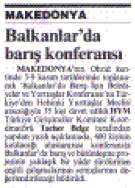
We organised a two minute ‘Silence Broadcast’ to be aired on private Turkish radio stations to protest the events in Sarajevo during the war.
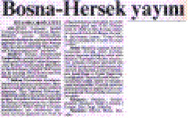
On July 16th 1993 we distributed leaflets over Istanbul from a plane on behalf of the civil initiative named ‘Citizen Initiative’, which was formed in response to the Sivas massacre.
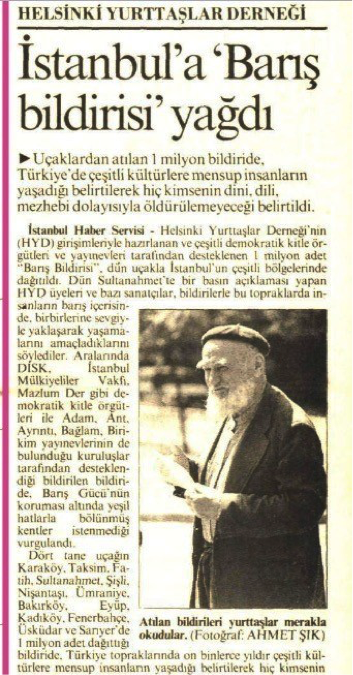
We, the Helsinki Citizens Assembly of Turkey Contractors Committee, applied officially to establish an Association and we continued our activities under the official status of Association as of 25 September 1993.
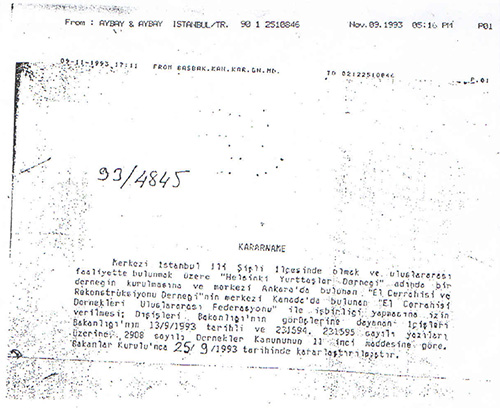
We completed our first publication, the "Democracy Report".
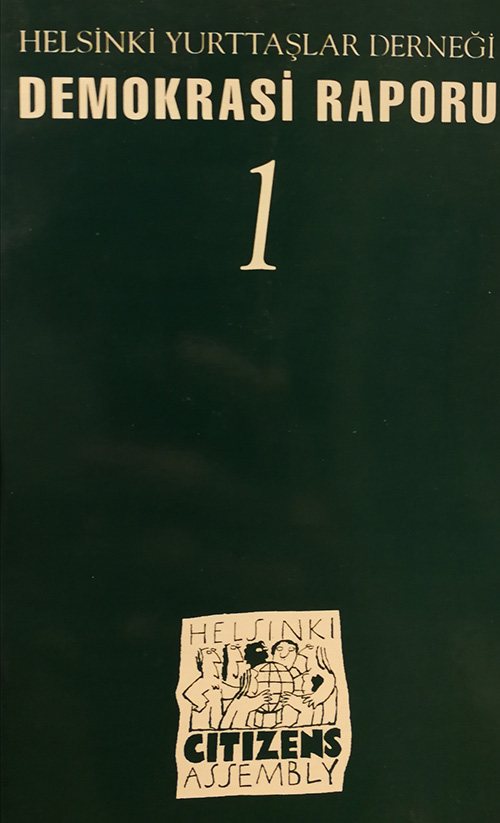
The “Where Does Europe End?” conference, which was organised by the international assembly of hCa, was held in Ankara through our organisation.
We published a bilingual report of the conference “Where Does Europe End?” in December 1993.
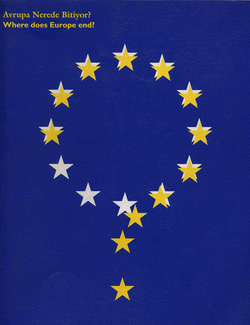
We organised a symposium named "Coexistence: Religion and State in Turkey" in May 1994, which also marked the starting point of our long-term engagement on studying the relationship between religion and the state.
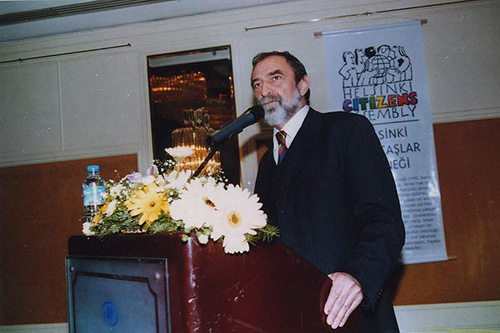
We published the notes from the "Coexistence: Religion and State in Turkey" (Bir arada Yaşama: Türkiye'de Din ve Devlet) symposium as a book.
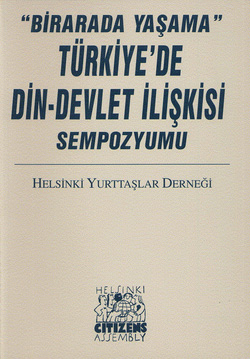
We published the book "Nationalism and European Integration" (Milliyetçilik ve Avrupa Bütünleşmesi).
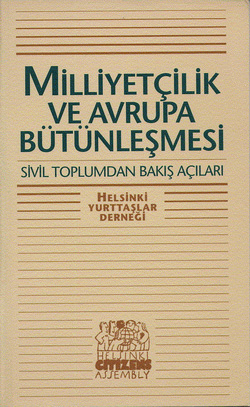
As hCa-Turkey we made our first call to start a campaign named "Bosnia Lives: First Step is Tuzla", the first meeting of which was held on February 18, 1995.
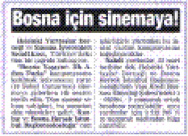
We organized a symposium named ”Refugees in the Year Of Tolerance”, together with the United Nations High Commissioner For Refugees, at Boğaziçi University.
We organised an exhibition, named “Intolerance” (Hoşgörüsüzlük), with over 100 artist members of the Association Of Plastic Artists, as part of the "Bosnia Lives: First Step is Tuzla" campaign. The exhibition was held at Yıldız Palace.
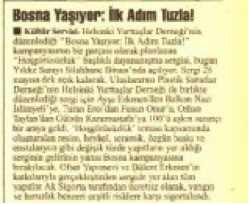
We initiated a letter campaign, sending letters to UN officials requesting the opening of Tuzla airport to the civilian people of Bosnia.
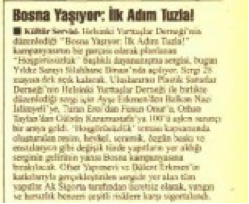
The notes of the “Refugees in the Year Of Tolerance” (Hoşgörü Yılında Mülteciler) symposium were published as a book.
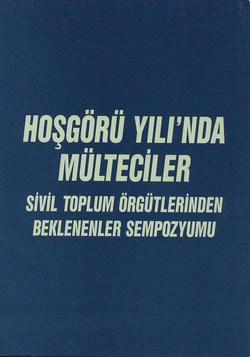
We organised a conference entitled “'8 Years Uninterrupted or Integrated Primary Education': What Will Happen Now?” in order to evaluate the possible social and political implications of the comprehensive changes in the national education system.
May 1997
We published "Civil Participation" (Sivil Katılım), a compilation from the notes of our seminar dealing with the efforts and discussions addressing the issue of civic participation in local government.
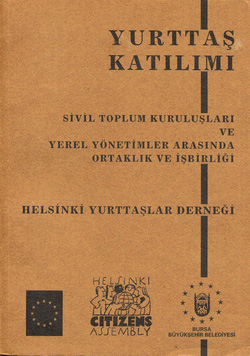
Our "International Summer School" was held in Çanakkale with the participation of 35 students from Turkey and various other countries.
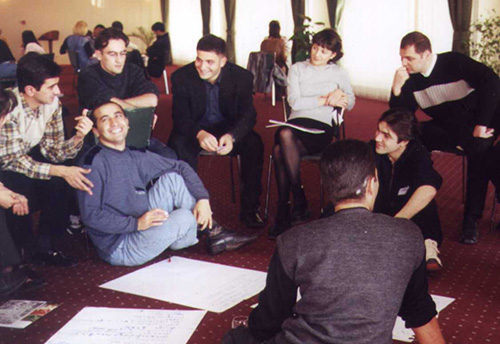
We attended the United Nations Decade for Human Rights Education National Committee with the invitation of the Undersecretariat of the Prime Ministry. Featured as an advisory committee, it was implemented within the framework of the UN Decade of Human Rights Education Action Plan.
April 1998
We published “Hello Civil Society” (Merhaba Sivil Toplum), with the purpose of introducing the civil society space to readers not specialised in this area.
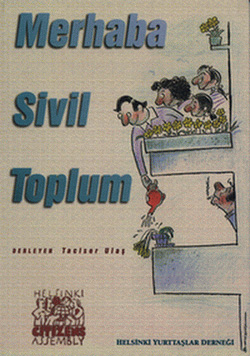
We published “Female Citizen's Handbook” (Kadın Yurttaşın El Kitabı).
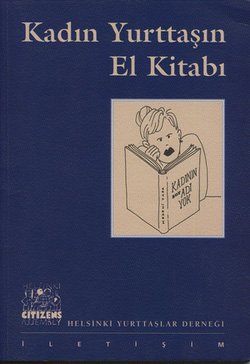
Our first local summer school, the "Çanakkale Summer School" was held with the participation of 35 students. We worked with Çanakkale Municipality and Çanakkale Civil Initiative to organize it.
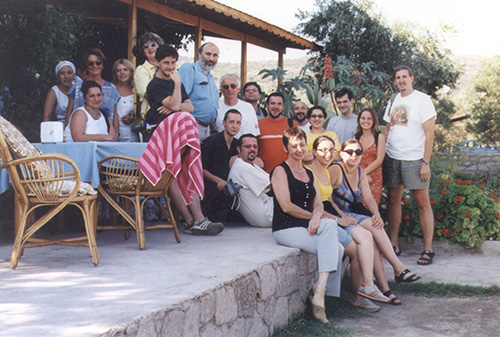
We attended the Organisation For Security and Co-operation In Europe meeting.
Following the Helsinki Summit we organized a roundtable with the objective of discussing progress in EU-Turkey relations.
During a period of increasing momentum in Turkey-EU relations, we organised a roundtable within the framework of the European Union Commission’s program of "East-West Gathering / Turkey and Europe: Debates on Culture and Modernization". This gathering, entitled "Wider Europe: Modernization and Pluralism", intended to initiate debates on themes such as nationalism, modernization, multiculturalism and pluralism during the prospective process of the unification between Turkey and Europe.
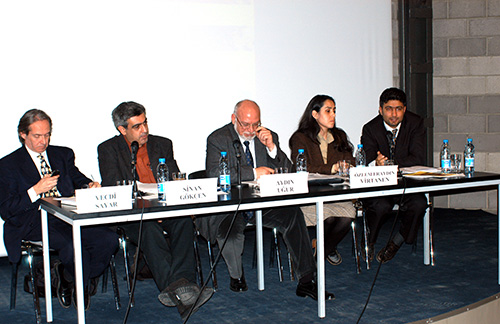
As part of our project “Problems in the Implementation of Administrative Judgment Decisions” (İdari Yargı Kararlarının Uygulanmasında Karşılaşılan Sorunlar) we convened a meeting with a wide range of experts to map issues in the field of administrative law.
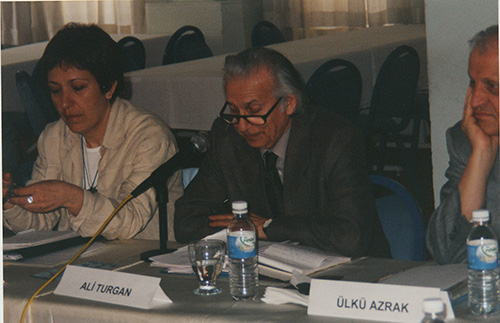
Our local summer school, planned for the first week of September in Çanakkale, was banned by the police. As a result classes were held between 4 and 8 September in Istanbul. We released a press statement regarding the prohibition decision on 4 September.
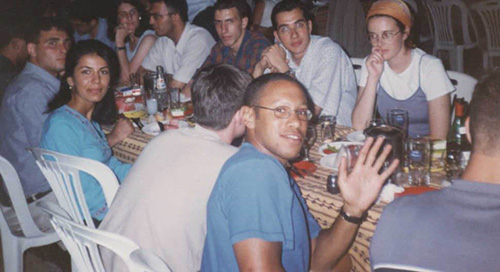
The first meeting of our "New Tactics" project, which we initiated with the intention of developing innovative methods to use in the struggle for human rights, was held in Istanbul in October with the participation of many activists from Turkey and abroad.
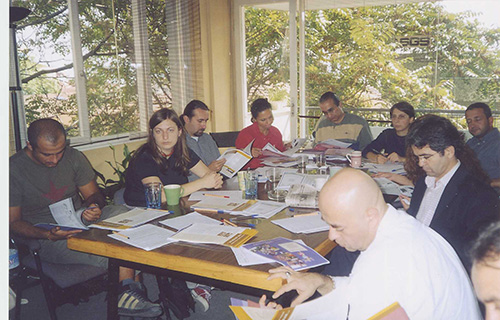
The 5th hCa International Assembly was held in Baku, Azerbaijan on October 28-31, 2000.
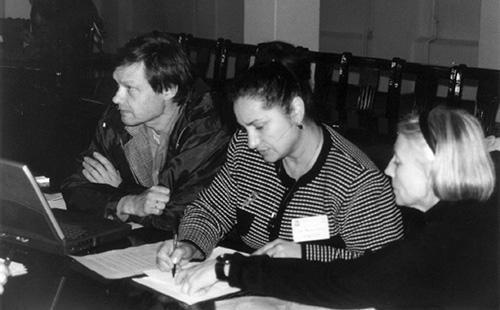
A series of meetings and panels entitled "Local Cultures and European Integration" were held in Şanlıurfa with the support of the EU Commission. They attracted considerable attention as a result of the popular agenda of the EU at the time.
We organized a series of meetings in Mersin, Diyarbakır, Ankara and Istanbul in the context of our project "Citizens' Freedom to Organize and Demonstrate: What Kind Of Legal Framework?” During the meetings we discussed in detail the draft proposals which we had developed for amendments to be made to the Associations Law, as well as the obstacles to their use in the right to organize.
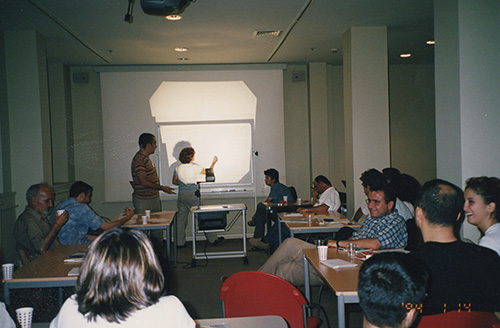
Our book entitled "Modernization and Multiculturalism"( Modernleşme ve Çokkültürlülük), published by the prominent Turkish publishing house, İletişim, compiled the declarations presented in the meeting entitled "A Broader Europe: Modernization and Pluralism", which we organized in March 2000.
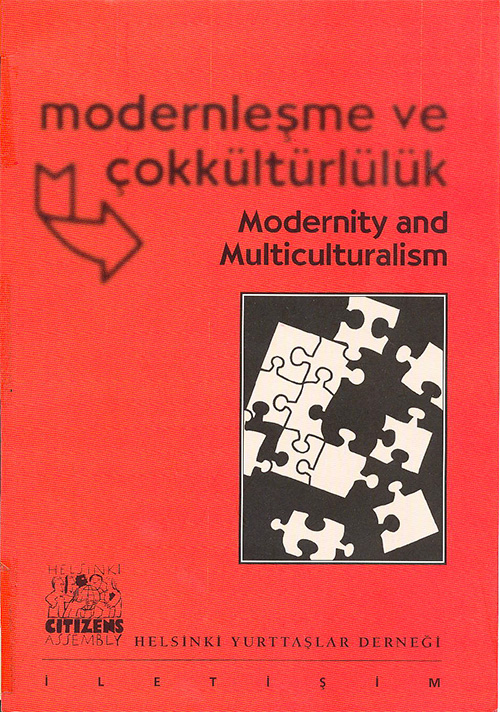
We held the third meeting of the program "Encounter of East and West / Turkey and Europe: Debates on Culture and Modernization" in Mersin. The first two meetings had been held in Istanbul in March 2000 and in Şanlıurfa in November 2000.
Following the September 11 2001 attacks in the United States, we organised a three-day roundtable meeting entitled "Terrorism and the State of New War" in Istanbul with participants from Turkey and abroad. The topics discussed included terrorism, the fight against terrorism, the new world order, and regional and national effects of this new situation.
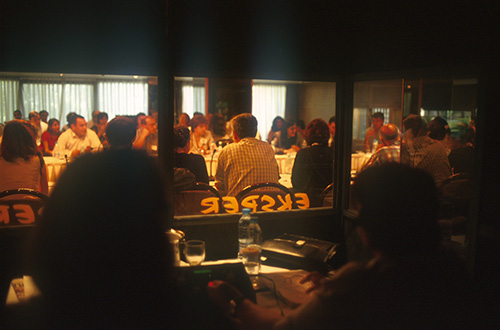
Following the completion of the first year of our long-term project "New Tactics in Human Rights Struggle", we organized a two day meeting in Istanbul Bilgi University.
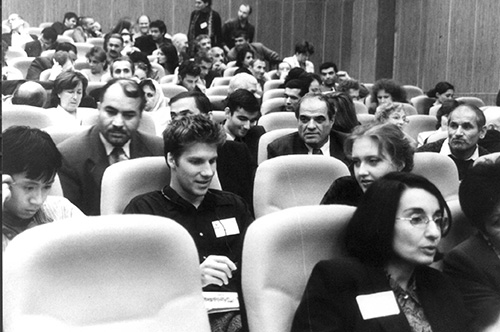
We organized the meeting "Civic Approaches in the Turkey-Armenia Dialogue" aiming to create the possibility of rapprochement beyond the official channels between Turkey and Armenia. It was attended by over 80 representatives from the two countries.
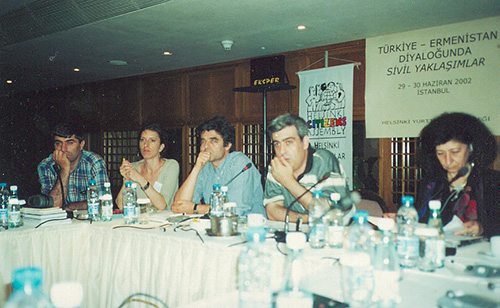
Our third local summer school was held in Van with the title "Future of Universities in the EU Process". On the last day of school we organized a panel titled "Turkey and the EU Integration" which was open to external participation.
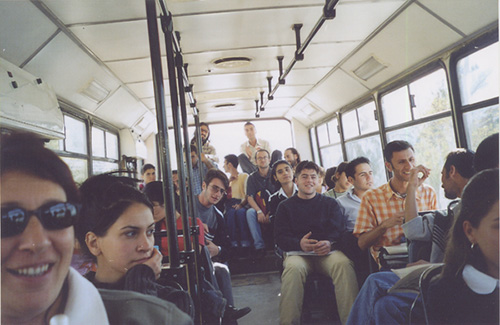
We organized an introductory meeting in Ankara on October 12-13, within the scope of our project "New Tactics in the Human Rights Struggle".
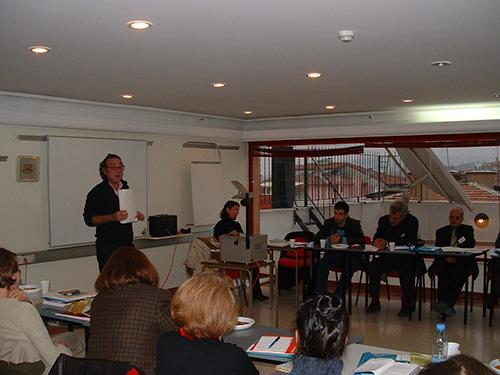
We held a reception in Ankara on November 2 to promote our report published within the context of our study "Freedom of Expression and Association in Turkey".
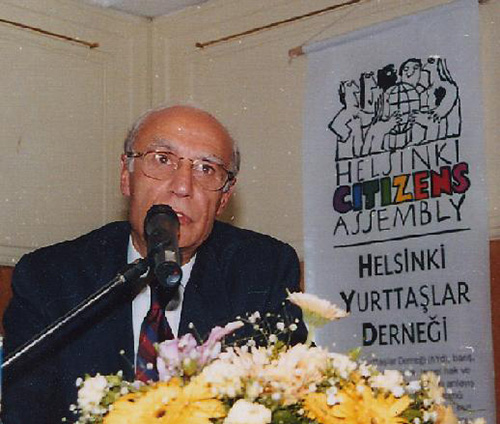
We organized the third introductory meeting of our "New Tactics in the Human Rights Struggle" work in Izmir on December 23rd with the participation of human rights activists from Russia.
The fourth introductory meeting of the "New Tactics in the Human Rights Struggle" work was held in Diyarbakır on January 17-18.
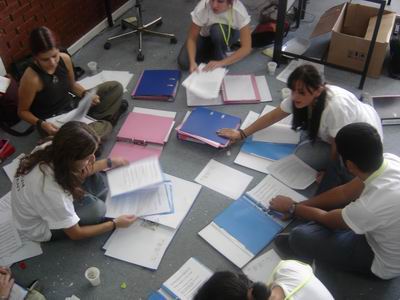
We organized a roundtable meeting to discuss the different approaches and perspectives regarding Turkey's EU membership process, entitled "Civil Perspectives on the EU Process", held in Istanbul on 2-3 May.
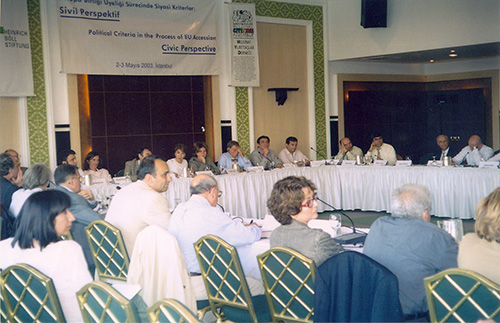
We organized a two-days training program entitled "Citizenship for NGOs" on June 12-15, in order to contribute to the acquisition of knowledge regarding relevant laws for civil society organizations in their activities, and to develop a common rights consciousness.
We convened the "Middle East and Turkey Regional Training Seminar" within the context of our work regarding "New Tactics in the Human Rights Struggle" on 4-7 September in Şile, Istanbul. Human rights activists from Middle Eastern and Mediterranean countries, as well as from Turkey, attended the gathering.
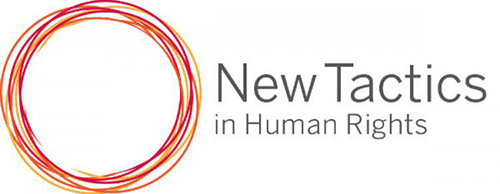
We organized an exhibition on December 19-21, exhibiting periodicals published in minority languages in Europe. During the first two days of the exhibition we organized a panel in Istanbul entitled “Right to Language in the European Union Process”. On the last day we organized a round-table meeting entitled "Language Rights in Turkey". We compiled the notes of the "Language Rights in the European Union Process" panel in a book with the same name.
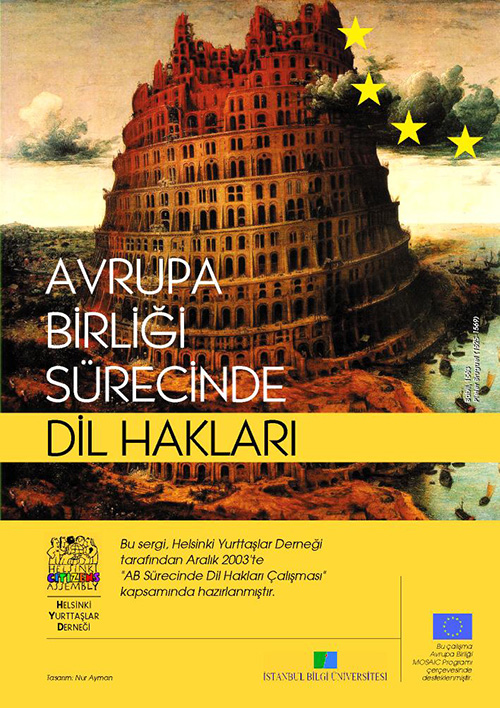
We organized a training program entitled "Guidelines for NGOs", within the scope of the "Freedom of Association" project, in Muğla, May 15-18.
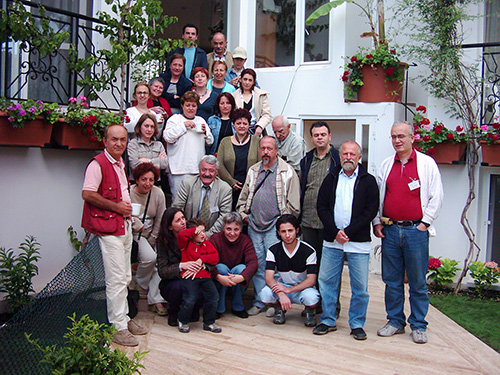
We organized a reception meeting, mainly for journalists, held on June 23, to increase the visibility of the forthcoming "New Tactics in the Human Rights Struggle" symposium.
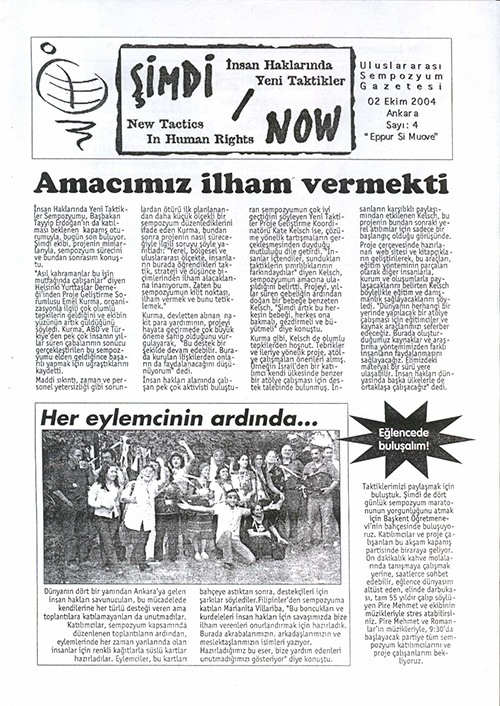
The “International Symposium on New Tactics in Human Rights" which we have been working on for the last five years together with TODAİE and the US Minneapolis centered Center for Victims of Torture (CVT) was held in Ankara from 29 September to 2 October 2004. Alongside the general sessions, in which more than 500 human rights activists from 95 different countries participated, tactical workshops and regional cocoon meetings were included in the symposium program.
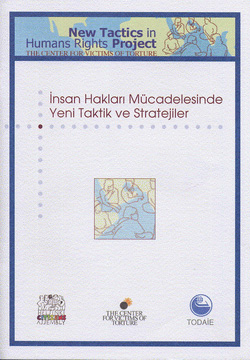
We held the final meeting in Ankara to evaluate Turkey's progress regarding the legislative changes and the freedom of association within the framework of EU adjustments.
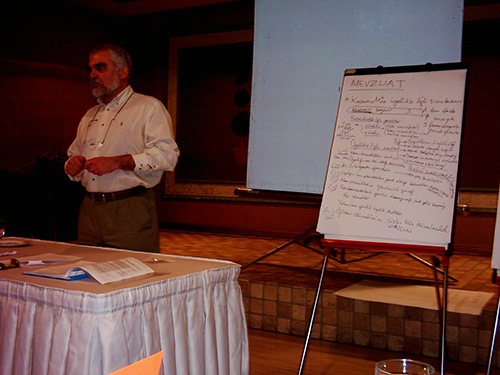
We started a series of seminars at Yapı Kredi Cultural Center regarding minorities in Turkey, as a response to the increasing pertinence of issue of minorities during Turkey's European Union accession process. The series started with speeches from Murat Belge and Halil Berktay. The second of the series of the meetings organised to discuss the issue was held on 5 February 2005 with the title "The Armenian Issue in Turkey". Mete Tunçay and Fethiye Çetin were speakers at this meeting.

The Refugee Support Project was established under the hCa Refugee Commission, and within this framework brochures in three languages were published with the titles "Refugee Conditions in Turkey" and "Basic Information for Refugees and Asylum Seekers in Turkey".
The hCa Refugee Commission, together with the Heinrich Boell Foundation, organized an international conference at Istanbul Bilgi University with the title "Turkey's Law on Refugees in the Context of International Standards".
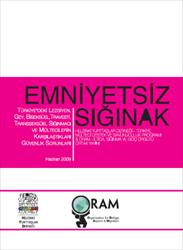
May 2005
A three-day conference titled "Ottoman Armenians in the Decline of the Empire: Scientific Responsibility and Democracy Problems", which had been planned to be hosted by Boğaziçi University, was postponed due to pressures, threats and blackouts. In response to the delay, we as hCa released a statement on 26 May. This statement, which called for " the Minister of Justice Cemil Cicek to Resign", was signed by various civil society organizations.
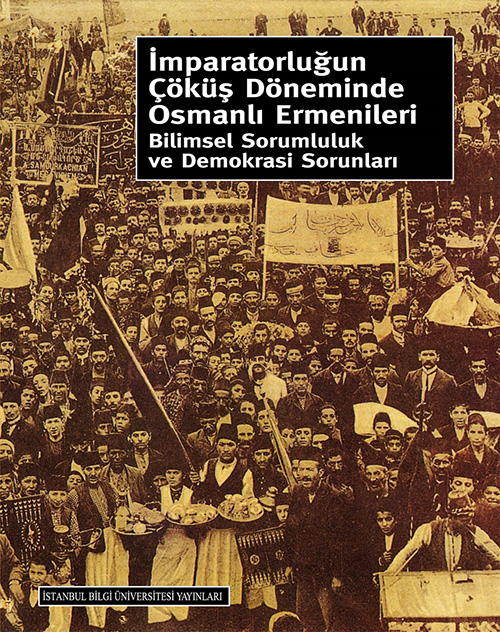
The hCa Refugee Commission organized a series of seminars entitled "The Protection of Refugees and the Role of Society".
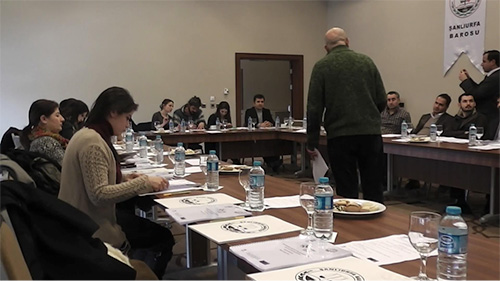
Human Rights Joint Platform, a network of five organizations struggling to improve human rights and freedom in Turkey (Human Rights Association, Amnesty International-Turkey, hCa, Human Rights Foundation of Turkey, The Association for Human Rights and Solidarity for the Oppressed, and Human Rights Agenda Association), was publicly started in August.
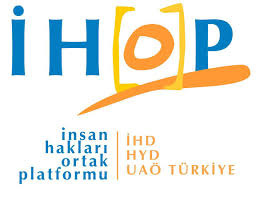
The international summer school, "Yavaş Gamats - Slowly", was held in Antakya with the participation of 24 Turkish and Armenian students from 9 to 18 August 2005.
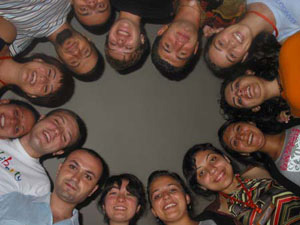
"Refugee Legal Support Training", prepared by the Refugee Support Program, started on November 7. In the training to be carried out with the support of the Swedish Consulate, various topics were dealt with such as interview techniques, working with translators, and how refugees will be defended at the United Nations High Commissioner for Refugees.
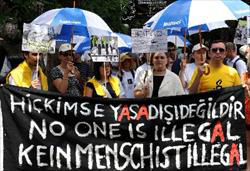
A group of our members organized a one-week long working tour of Lebanon, Syria and Jordan in order to create more effective collaborations.
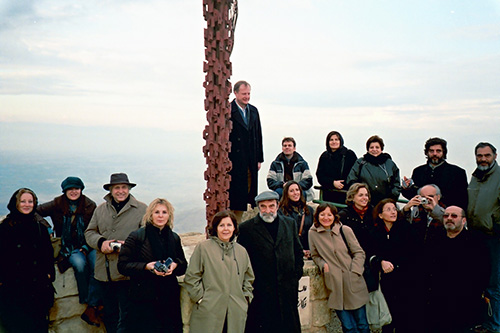
March 2006
We held the meeting entitled "Quest for Civil and Democratic Solution 1: Turkey's Kurdish Issue", which we organised in partnership with Empathy Group, at Istanbul Bilgi University on 11-12 March.
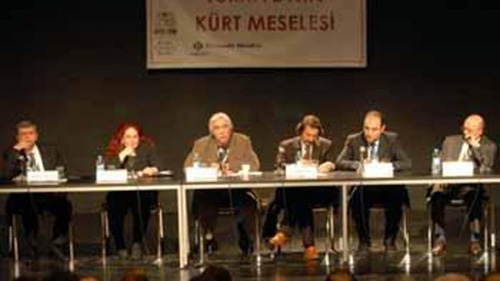
On March 9, as part of our work for “Promoting Roma Rights in Turkey” which we started on January 2006, we held a working session in Edirne together with EDROM (Edirne Roma Association). We also organized an event on April 14-15 in Edirne, bringing together representatives of civil society organizations and official institutions.
We launched our study "Mapping of The Dynamics of Torture and Ill-Treatment in Turkey", inspired by our work on "New Tactics in the Human Rights Struggle", with a training program in April.
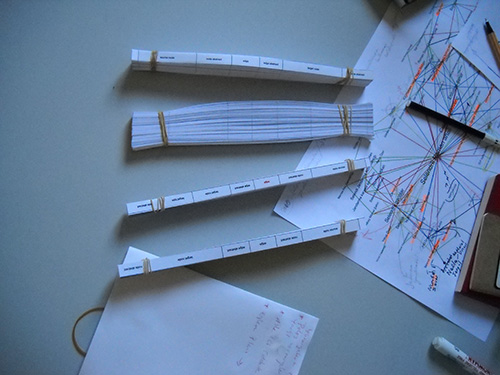
We organized the last seminar of our training program entitled "Guidelines for NGOs" in Van with the participation of NGOs operating in the Eastern Anatolia region.
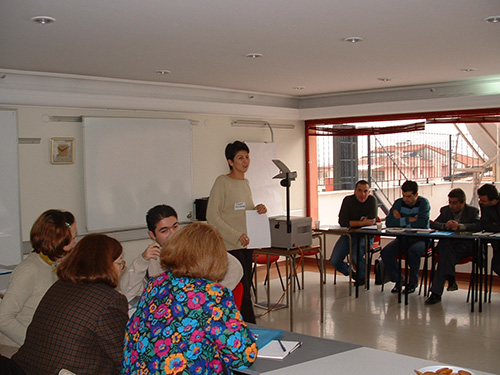
We published our book "Knowing Your Rights and Fighting for them: A Guide for Roma Activists" (Haklarınızı Bilmek ve Onlar için Mücadele Etmek: Roman Aktivistler için Bir Rehber).
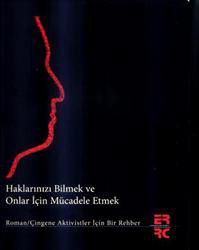
We organized a training seminar on June 24-25 for the Roma organizations established in Edirne and the surrounding area as part of our project "Promoting Roma Rights in Turkey".
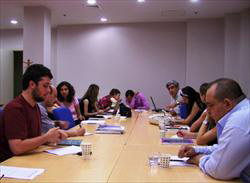
We organized the second training session as part of our project "Promoting Roma Rights in Turkey" on October 6-7 in Istanbul, which was intended for the Roma community.
We organized the third training session as a part of our project "Promoting Roma Rights in Turkey" on November 3-4 in Mersin.
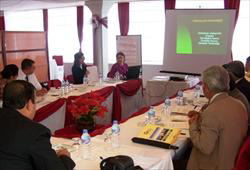
We held the conference "Cross-cultural Citizenship: Political Participation and Muslims", which we organized in cooperation with Istanbul Bilgi University and Barcelona based CIDOB Foundation, at Istanbul Bilgi University on 24-25 November.
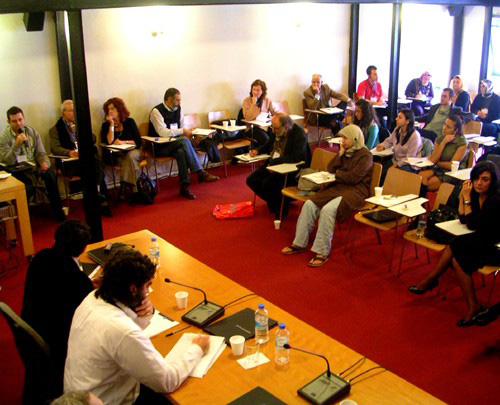
hCa Commission for Refugees organized a meeting in Eskişehir, named “Refugees in Satellite Cities: Training Program for Local NGOs”, in order to inform civil society organizations, relevant public institutions, and local governments of the satellite towns in Turkey where asylum seekers live, about the refugees living in difficult conditions in their own towns.
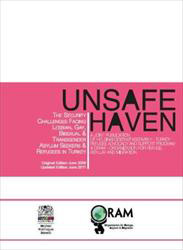
We published our book, "Women's Handbook: Our Rights in Law" (Kadının El Kitabı: Yasalardaki Haklarımız), aiming to compile legal information for women to use in their daily lives in a simple and easy manner. The book was published a book in Turkish and Kurdish.
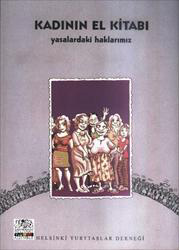
Hrant Dink, Agos Newspaper Chief Editor and member of hCa-Turkey was assassinated on 19 January in Şişli, Istanbul.
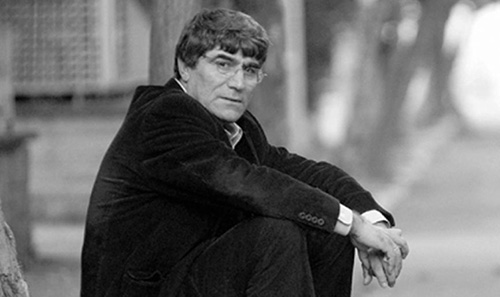
February 2007
The first issue of our newsletter "Refugee Voices" was published, prepared within the framework of the Refugee Support Program, which aimed to draw attention to the situation of refugees living in Turkey. The newsletter consisted of articles and photographs of refugees living in Turkey, and was published in two languages, Turkish and English.
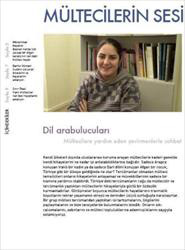
We conducted a series of meetings to introduce our book, "Handbook of Women: Our Rights in the Law" (Kadının El Kitabı: Yasalardaki Haklarımız), published in Turkish and Kurdish. Meetings were held in Izmit on February 15-16, in Diyarbakir on March 2, and in Izmir on March 8 . These meetings were held in cooperation with KAMER (Foundation Of Women’s Solidarity)-Diyarbakır and DİSK Textile Business Union.
We held an extended working group meeting within the context of our project "Mapping of the Dynamics Nurturing Torture and Ill-treatment in Turkey" on March 17 at Sabancı University in Karaköy.
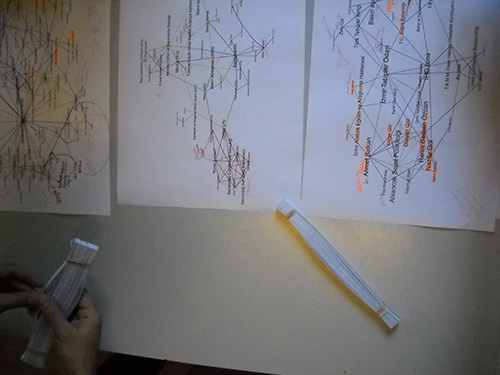
We organized a training workshop named "Roma Rights Advocacy Training for NGOs" within the scope of our project "Improving Roma Rights in Turkey", on March 24 in Ankara.
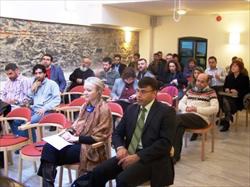
We attended a meeting intended to understand the solidarity/cooperation opportunities with Iranian non-governmental organizations. This meeting was lead under the Initiative For Freedom Of Expression and was held on 13-16 April.
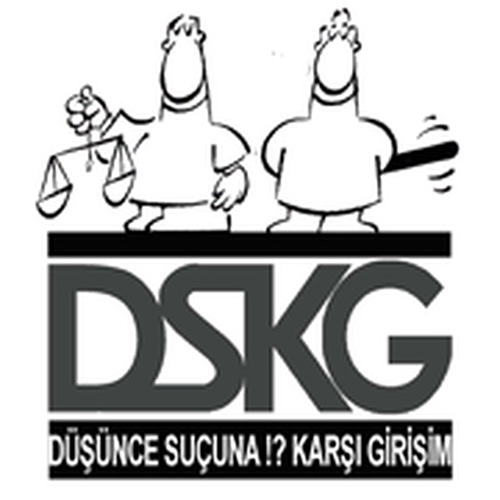
The second meeting of the training program, named “Refugees in Satellite Cities: Training Program for Local NGOs” developed in order to inform civil society organizations, relevant public institutions, and local governments of the satellite towns in Turkey where asylum seekers live, about the refugees living in difficult conditions in their own towns, was organised on April 27-29 in Nevşehir.
We held the second meeting of the "Roma Rights Advocacy Training for NGOs" in Mersin on 19 May, and the third meeting on May 26 in Izmir.
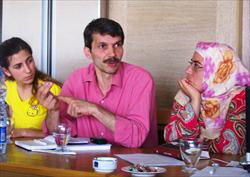
The field research, which was one of the major pillars of our project "Promoting Roma Rights in Turkey", ended after fourteen months. Our publication containing the results of the study was published under the title "We Are Here! Discriminatory Exclusion and Struggle for Rights of Roma in Turkey"(Biz Buradayız: Türkiye'de Romanlar, Ayrımcı Uygulamalar ve Hak Mücadelesi) in 2008.
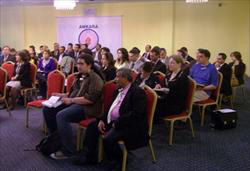
The third meeting of the "Refugees in Satellite Cities: Training Program for Local NGOs" project was held on October 5-7 in Isparta.
We published a guidebook titled "Refugee Support Handbook for NGOs" (STK'lar İçin Mülteci Destek El Kitabı) within the context of the "Refugees in Satellite Cities: Training Program for Local NGOs".
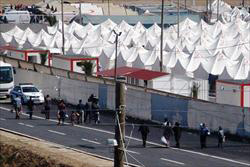
We organized a seminar titled "Armenian Community After 19 January" to mark the first anniversary of the murder of our member Hrant Dink.
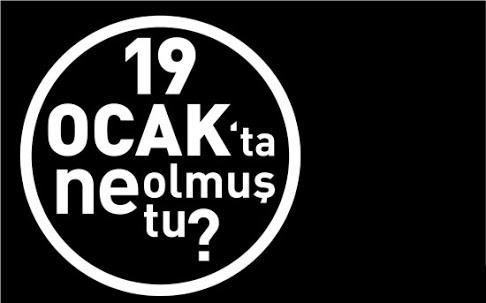
Our project "Mapping of the Dynamics Nourishing Torture and Ill-treatment in Turkey”, which we had worked on since 2006 in cooperation with the Human Rights Agenda Association (HRAA), ended with the final evaluation meeting held at Istanbul Bilgi University Dolapdere Campus on 19 April. The meetings in Izmir, Diyarbakır and Van are to follow.
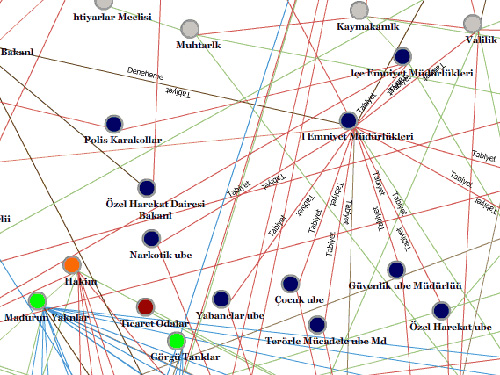
The publication compiling the results of the project "The Mapping of the Dynamics Nourishing Torture and Ill-treatment in Turkey” (İşkencenin Haritalanması: Türkiye 2006/2007) was published under the title “Mapping The Torture: Turkey 2006/2007”.

Our report on "Unwanted Refugees: Refugees kept in Foreigners Guesthouses in Turkey" (İstenmeyen Mülteciler: Türkiye'de 'Yabancı Misafirhaneleri'nde Tutulan Mülteciler) was published on 2 April within the framework of our program of Refugee Advocacy and Support. The report was based on interviews with 40 “refugees” who were kept under surveillance in foreigner guesthouses in various provinces of Turkey between October 2006-September 2007.
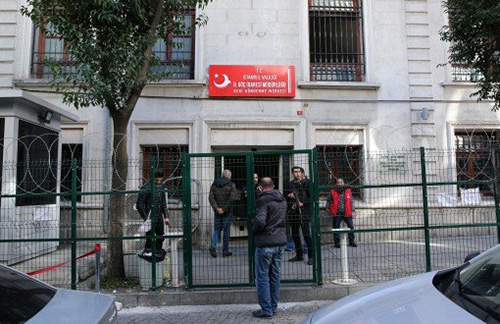
The fourth of our "Refugee Advocacy Training Seminars for NGOs", organized under the framework of our Refugee Support Program, was held in Antakya on May 9-11 with the cooperation of Hatay Bar.
We organized a local summer school, "Citizenship and Nationalism: Are We Aware?" in Izmit. The summer school intended to contribute to the development of a peaceful culture against discrimination among young people. Based on the concept of "intercultural citizenship", it attempted to develop a critical view of nationalism. It brought together 35 university students, of which 20 were from Istanbul and 15 from outside Istanbul.
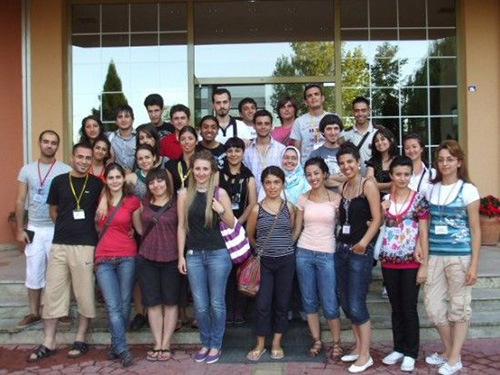
We published the book, "We Are Here! Discriminatory Exclusion and Struggle for Rights of Roma in Turkey" (Biz Buradayız: Türkiye'de Romanlar, Ayrımcı Uygulamalar ve Hak Mücadelesi), prepared through the work carried out by hCa, Edirne Roma Association and the European Roma Rights Center (ERRC). In addition to presenting the data of the field research, it intended to summarize the developments of the Roma rights movement, demonstrate the situation of Roma communities living in Turkey, and voice the human rights violations they face.
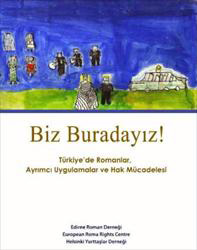
We organized a panel, "Citizenship and Nationalism: Are We Aware?", following the summer school with the same theme, on Bilgi University's Dolapdere campus on 25 October.
We published the book "Our State of Nationalism: Are We Aware?" (Milli Hallerimiz: Milliyetçilik ve Yurttaşlık: Farkında mıyız?)
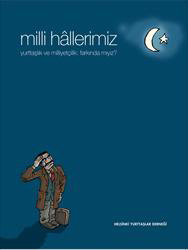
We organized a conference titled "Turkey's Kurdish Issue and Current Dynamics in Northern Iraq", with the support of the Human Rights Joint Platform, at Istanbul Bilgi University on December 27. The conference approached the Kurdish issue from the perspective of both the international arena and in light of the latest developments in the region. Academics from northern Iraq participated as speakers.
We started the second mapping study "Turkey's Discrimination Networks" with HRJP (Human Rights Joint Platform) compound organisations. This second mapping study was inspired by our first study "New Tactics in Human Rights Struggle". We worked with local organisations of Human Rights Association, The Association for Human Rights and Solidarity for the Oppressed and Amnesty International in Izmir, Van and Cukurova Region (Mersin, Tarsus, Adana). The aim of the study was to demonstrate discriminatory practices faced at home or abroad, of the different motives of Turkey, and to make the attitudes of institutions visible when such practices are faced.
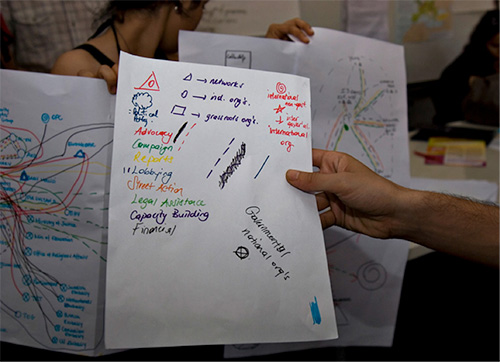
In April 2009 we organized the first of the six roundtable meetings designed within the scope of our "Practices of Secularization in Everyday Life" project. The aim of these meetings was to create a productive and comprehensive dialogue environment where people from different social sectors, from academics to students, from employees of NGO’s to municipality managers, are the subject of debates on the effects of secularism and religion on our everyday lives.
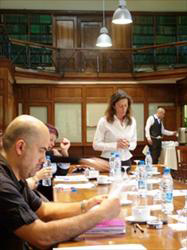
We organized an international conference, "Construction of Political and Social Peace within the Context of Democratization: the Balkans, the Middle East and Turkey", in partnership with the History and Comparative Literature departments of Istanbul Bilgi University. The aim of the conference was to evaluate the "democratic opening" process, which was on the agenda for that period, in various dimensions, along with problem axes and transformation opportunities. Participants from countries such as Greece, Bulgaria, Cyprus, Kosovo and Macedonia also contributed to the panels of the meeting. During the workshops the following topics were discussed in depth in small groups - "Paramilitary structures and peace process", "Peace is hidden in detail", "Knowing names", "Migration and city", "Control of the city for democracy", "Freedom of expression and belief", "Public order and security”. The conference was held at Istanbul Bilgi University Dolapdere Campus on 30-31 January 2010.
We held an international meeting in Istanbul in May 2010 within the scope of our project "Practices of Secularization in Everyday Life", with the participation of public authorities, religious authorities, intellectuals, researchers, academicians and NGO employees from other countries where culture dynamics are conflicting and problematic (Israel, Morocco, Tunisia, France, UK, USA, Greece).
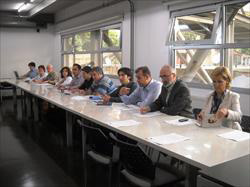
We published "Practice of Secularism in Everyday Life"(Gündelik Hayatta Laiklik Pratikleri) a compilation of the outputs of our symposiums of the same name.
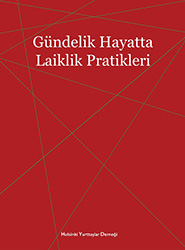
The first introductory meeting of the international "Black Sea Peace Network" project, a series of meetings aiming to support peace-building efforts in the Black Sea basin, took place in July 2010. The goal of the network, which we as hCa undertook as the organization representing the Turkey branch, was to contribute to the creation of a civilian ground that will work on transforming/solving "ethno-political" conflicts. The first meeting brought together academics and civil activists who work on the conflictual issues of the Black Sea basin and Turkey. The second meeting of the network was held in September 2010 with the title "How did Conflict Hit The Streets?”, the third entitled “Militarism” was held on October 2010, the fourth within the framework of “Alternatives to Central Management” in November 2010, and the fifth entitled “Teaching in Conflict Areas” was held in December 2010.
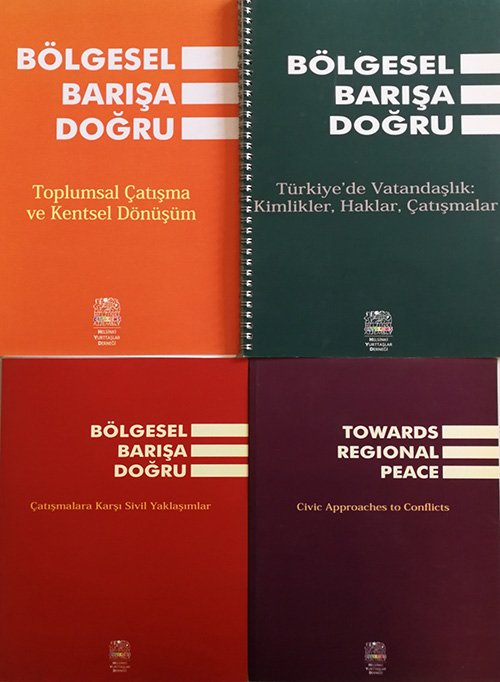
September 2010
We organized a summer school “SIDU - Seminar for International Dialogue and Understanding” with the hCa France office to mark the 20th anniversary of the foundation of the International Helsinki Citizens' Assembly network. The main topic of the summer school, held in Şile, Istanbul, between September 27 and October 1, 2010 was "Multiculturalism, Identities and Democracy". A total of 31 people from European countries, Balkans, Caucasus and Russia attended the summer school.
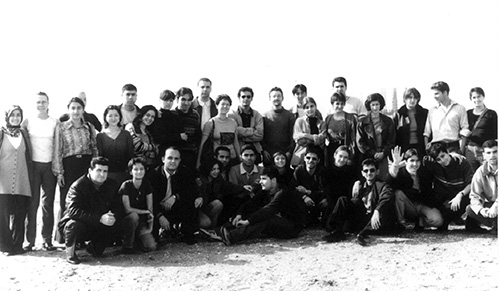
October 2010
We held a series of events in Istanbul to mark the 20th anniversary of the foundation of the International Helsinki Citizens Assembly on 1-3 October 2010. After the opening meeting, entitled "Que Vadis Europe?” the program continued at Istanbul Bilgi University campus with discussion sessions addressing the issues “refugees, borders, new Europe, economic crisis, security, democracy and Turkey's EU membership ". In addition, we organized four workshops under the headings "Nationalism", "Federalism", "Militarism" and "The Future of hCa".
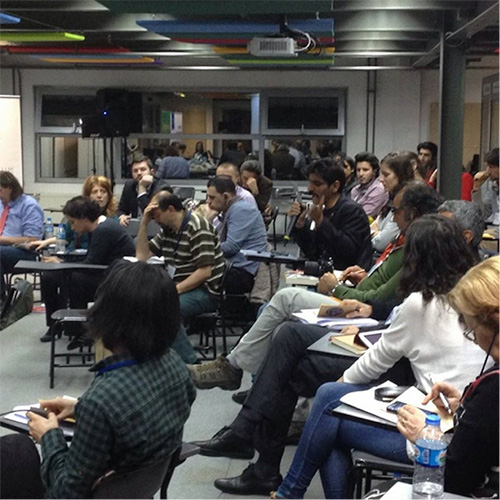
We held five meetings between April and December 2011 within the framework of the "Black Sea Peace Network" that we joined in 2010. Academics and activists from various fields wrote articles on the themes of the meetings: "Where Turkey - Is the bureaucratic and militarist system transforming?", "Policies that prevent a solution in Cyprus", "The issue of democratic autonomy", "Those who are displaced by urban transformation" and “Strengthening of Decentralisation”.
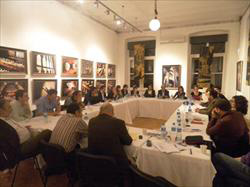
The MSF Refugee and Immigrant Psychological Support Program, which operates under the roof of our Refugee Support Program, began activities on May 15, 2011.

Following the earthquake in Van on October 23, 2011, the Barcelona office of Doctors Without Borders (MSF), a long-term project partner of hCa, sent a team to Van to make an assessment of the post-earthquake aid requirements. During an eight-month period, we helped the MSF team establish contact with public institutions in Van. In the same period, the Human Rights Joint Platform sent a working group to Van to evaluate the activities after the earthquake. As hCa we were also part of the group that contacted the representatives of the Governorate, Van Municipality and the local NGOs.
A group of hCa members participated in the international meeting held in Arbil, Iraq, in cooperation with ICCSI (Iraq Civil Society Solidarity Initiative), Un Ponte Per and Helsinki Assembly of Citizens-France. We contacted activists and NGOs working in the field of "human rights" to increase regional co-operation through our activities.

The international regional meeting of the Black Sea Peace Network, which we supported logistically and content wise, was held in Istanbul in December 2011. Representatives from organizations in Armenia, Azerbaijan, Georgia, Moldova, the Russian Federation and Ukraine participated in the meeting.
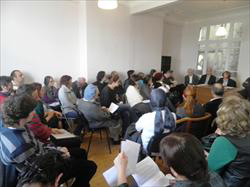
We organized seminar-workshop programs in Muş, Van and Istanbul within the framework of the “Supporting Teachers as an Actor in the Peace Process” project, between February 2012 and September 2013. These programs, attended by primary school teachers and candidate teachers, aimed to provide tools for those educators who are working within the context of the Kurdish issue and who are trying to cope with the serious problems that are felt in the field of education, alongside every field of life. They aimed to contribute towards creating an atmosphere of reconciliation and peace within the school environment.
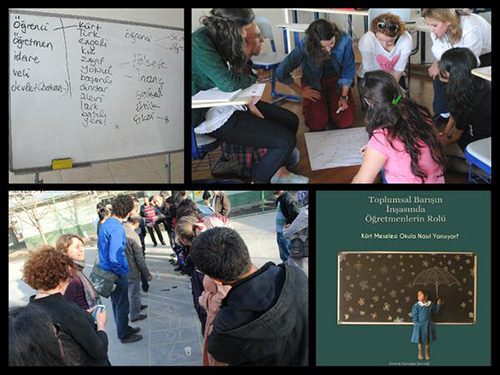
We organised the conference “Towards a New Constitution: Middle East, North Africa and Turkey”, in partnership with the Friedrich Ebert Stiftung organisation, held at Taksim Point Hotel on 28 April 2012. The conference sought to answer the question “What should the citizen constitution be?” with speaker contributions from Turkey and the Arab world. Experiences of pluralistic constitutional processes and shared practices were heard from Turkey, Iran, Syria, Iraq, Egypt, Tunisia and Algeria.
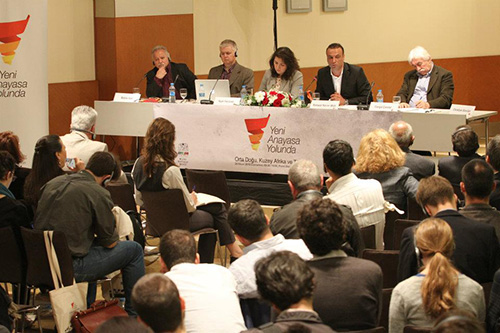
The CMI (Crisis Management Initiative) from Finland conducted a workshop on May 12 in the hCa office to promote the Foresight Methodology method used in the work of the Black Sea Peace Network.
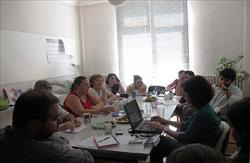
We organized the workshop “Growing up in Turkey: Kurdish Children and Young People” within the scope of the Black Sea Peace Network, held on 19 May. The focus of the meeting was on conflicts which children and young people experience as a result of the Kurdish issue.
We organised a series of discussions in our office oriented around the title “Towards 2015”
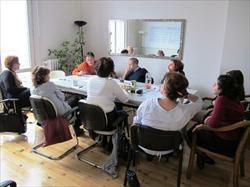
We organised a meeting to exchange opinions on “Steps in the Turkey-Armenia reconciliation process”.
In September 2012 we became a member of the Euro-Med Human Rights Network (Euro-Med Rights). EuroMed Rights has been operating since 1997 as a regional network of solidarity based connections and cooperation across borders between a large number of civil organizations and enterprises operating within the human rights field in 30 countries in the EuroMediterranean region.
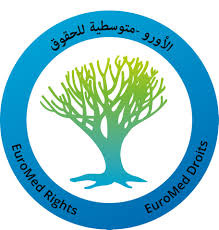
We supported the public release of a report entitled "Rights Violations under Compulsory Military Service", with the holding of a press meeting and panel discussion in Istanbul on Friday, October 12, 2012. The report, produced by the Soldiers Rights group, is based on entries to the website www.askerhaklari.com over a one year period between April 2011 and April 2012. Following the presentation of the report, a panel discussion was held with the participation of Kürşat Bumin, Ferhat Kentel and Zafer Üskül, and under the moderation of Şirin Payzın.
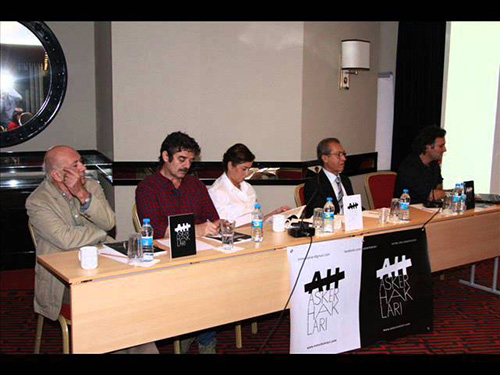
The second meeting of the series on Kurdish youth and children’s issues, “Growing up in Turkey: Education in the mother tongue”, was held on 8 December.
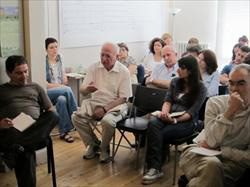
We organised a meeting entitled “Turkey-Armenia reconciliation process Step II” on 15 December, the purpose of which was to bring together different ideas and approaches to confront the past issues of society.
We organised a legal workshop on 22 December 2012 in order to be able to respond to the violation complaints posted on the askerhaklari.com website and to respond to the need for legal information that may arise regarding the nature of these complaints.
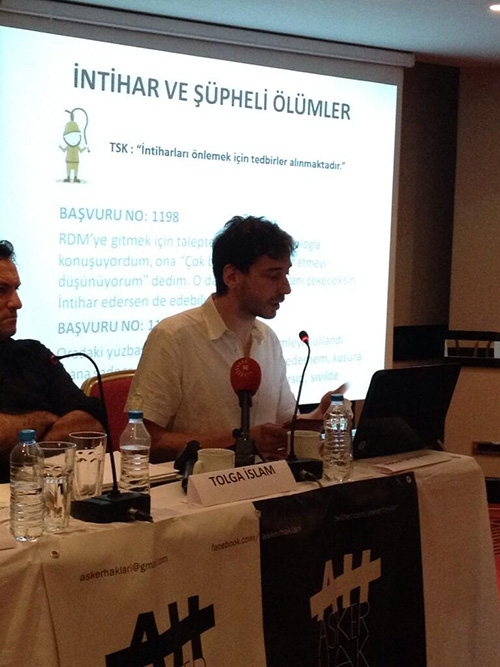
We published the 2013 Teacher’s Calendar within the scope of the project “Supporting Teachers as an Actor in the Peace Process”.
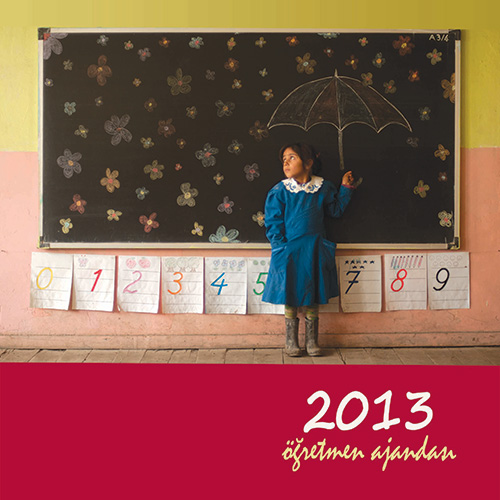
The conference hosted by Istanbul Bilgi University Department of Comparative Literature in January 2010 has evolved into a project titled “The process of democratization in the political, and the construction of social peace: the Balkans, the Middle East and Turkey" in the last months of 2012. The initiative was developed as part of a long term strategy to create a sustainable partnership network among the research community of civil society organisations/initiatives in Turkey and the Balkans, and included six different organizations from the Western Balkans.
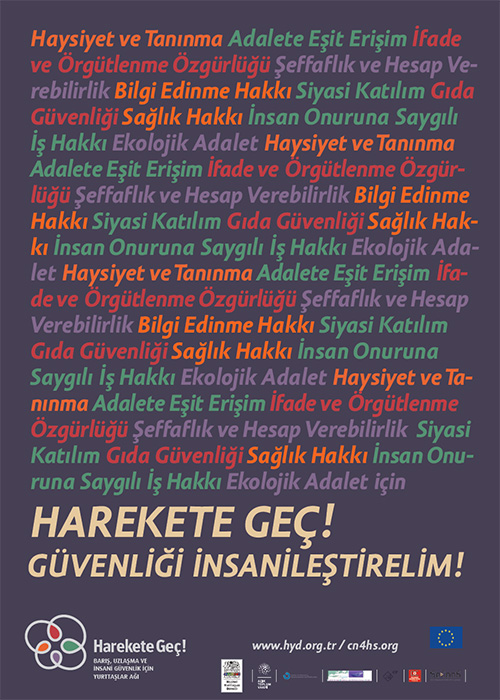
April 2013
We launched our project "Presidency of Religious Affairs and Religious Services in the Context of Socio-economic Policies", which had been under preparation since 2012, with an introductory meeting held on 27 April in Istanbul. This project aimed to draw public attention to the issue of the state's control over the religious debates in Turkey, and the discriminatory structure of the Department of Religious Affairs, and aimed to provide space for dialogue between the parties. We held dialogue meetings in the cities of Konya, Dersim, Trabzon, Sakarya, İzmir, Mardin and Antakya throughout 2013.
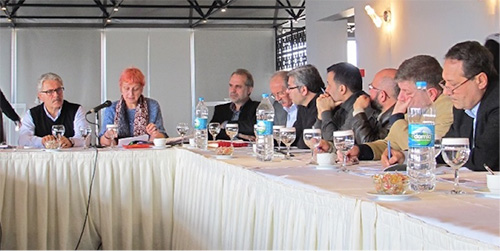
We organized monitoring workshops and panels in Istanbul, Muş and Van within the scope of our project "Supporting Teachers as an Actor in the Peace Process", in the first half of 2013. We published the report "The Role of Teachers in the Peace Process / How the Kurdish Question is Reflected in School" (Barış Sürecinde Öğretmenlerin Rolü / Kürt Meselesi Okula Nasıl Yansıyor), during the course of the study. This included research conducted in the education field which aimed to understand the issues for teachers in Kurdish cities and areas of high immigration, and policy recommendations built on this.
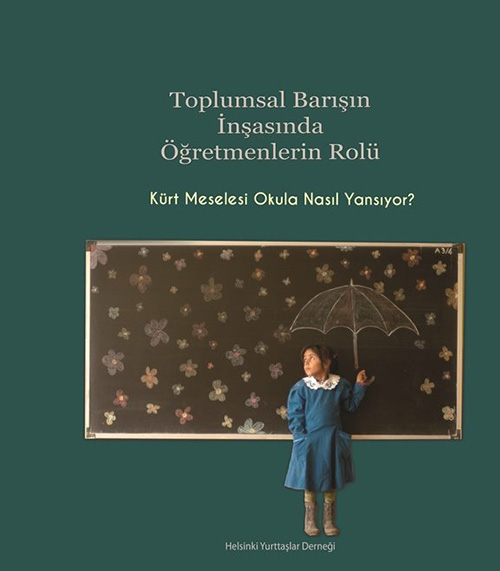
We initiated the "Project on Civil-Public Cooperation in the Democratization of Local Politics" in Fall 2013. The project, which began immediately after the Gezi Park Protests, aimed to establish a model and procedure to enhance civilian involvement in public policy processes at the local level, in line with the tendencies of the Gezi Protests. With this objective, we designed a research project in clusters of seven regions across Turkey to deal with local political issues (public interests such as public/private investments, development plans, ecological and social affairs) and policy-making, implementation and evaluation processes. We used the “network analysis/mapping” software which we had previously used in earlier studies in various other fields.
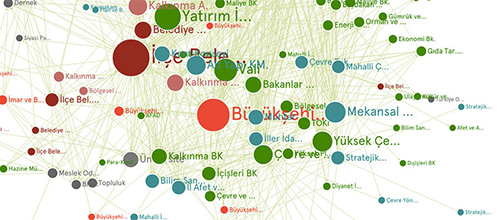
We joined organisations from different countries working on a long-term project, “Construction of The Political and Social Peace in the Democratisation Process: Balkans, Middle East and Turkey”, carried out surveys, organised panels and meetings around three major themes (youth and violence, violence at work, and forced displacement). As part of this project we joined the international "Humanising Security" conference held in Kadir Has University in Istanbul between 31 January and 1 February.
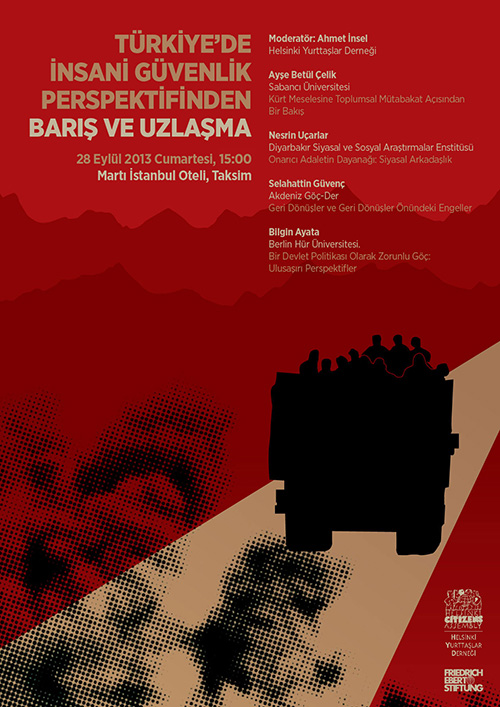
We planned a series of meetings to discuss the problems and demands of the Syrian refugees, with the title “The Syrian Refugees on the Syrian Border and Ethnic / Social Problems". These were held in Şanlıurfa, Gaziantep and Antakya on 20-22 February.
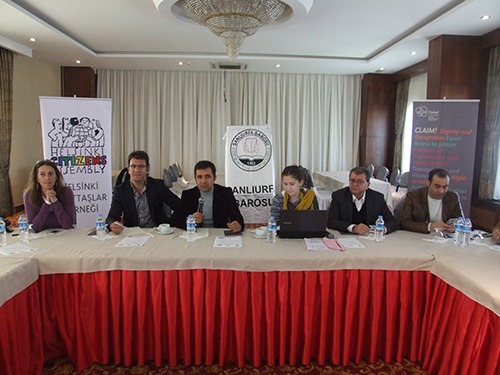
On April 24-25, we organized a two-day symposium in partnership with the London School of Economics titled "Human Security Debate Meeting: The Cases of Syria, Iran and Israel".
Within the framework of our "Civil-Public Cooperation in the Democratization of Local Politics” (Regional Administration / Local Democracy) work, we organized 14 working meetings in seven regions. The first one of these meetings, held in Trabzon in June 2014 was about the "Green Road" project aiming to revitalize the tourism activities in the region with the construction of a road linking the springs in the Eastern Black Sea region. The second meeting on the issue was held in Rize in November 2014.
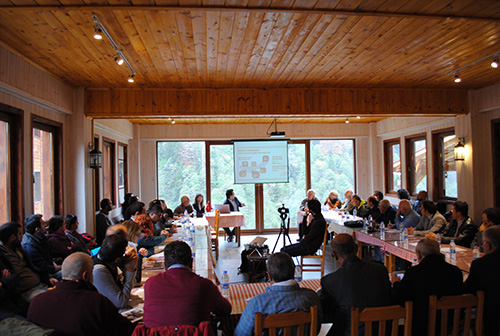
We organized an international summer school in Sarajevo, the "Humanitarian Security Summer School" between June 5-9.
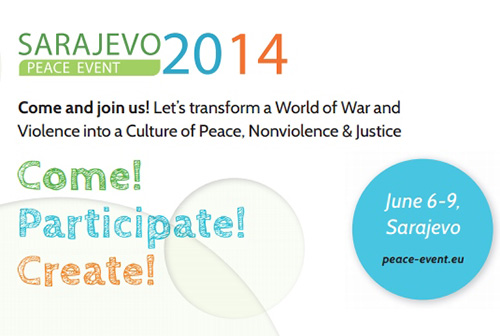
In January 2014, we completed a joint program with Armenia Civilitas Foundation (CF), Eurasia Partnership Foundation (EPF), Public Journalism Club (PJC), Regional Studies Center (RSC) from Armenia, Turkey Anatolia Culture, Turkey Economic Policies Research Foundation (TEPAV) and the Hrant Dink Foundation from Turkey. The goal of the program was to support civil society activities that aim to normalise Turkey - Armenia relations. Within this context, we decided to revive the YavaşGamats summer school, which we had initially organised in 2005. We held our second meeting in Sapanca on 11-17 August 2014 with the participation of students and teachers from the two countries.
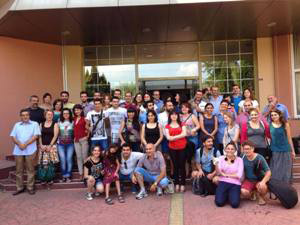
We organized a workshop regarding the Kanal Istanbul Project as part of our "Civil-Public Cooperation in the Democratization of Local Politics” (Regional Administration / Local Democracy) project. Academics, representatives of relevant professional chambers and NGO members attended the meeting following a research trip along the possible route of the canal.
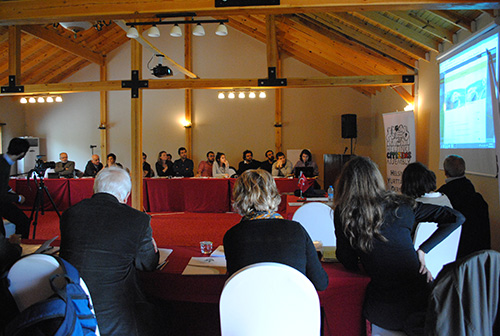
We designed thematic workshops to open up discussion spaces about Turkey’s current issues, from a human security perspective. The first two of these meetings were held in October and November 2014 in Istanbul. The two meetings, entitled: “Forced Displacement and Human Security in Turkey” and “Human Security at Work and In Business Life”, and were held on 17 October and 15 November.
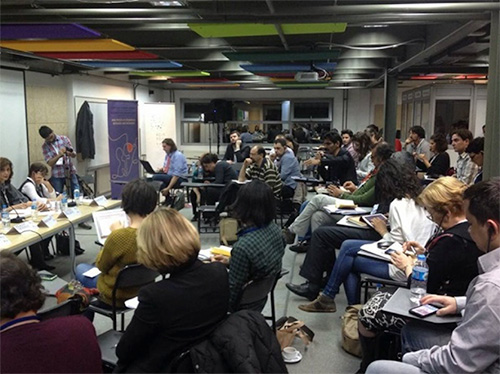
We published our book "Presidency of Religious Affairs in the Context of Socio-Economic Policies: Public Opinion on Religious Affairs, Discussions and Recommendations" (Sosyo-Ekonomik Politikalar Bağlamında Diyanet İşleri Başkanlığı: Kamuoyunun Diyanet'e Bakışı, Tartışmalar ve Öneriler) following our project “Presidency of Religious Affairs and Religious Services in Relation to Socio-Economic Policies and Religious Services”, which we carried out throughout 2013. This book consists of notes of the meetings held in 11 cities regarding this topic, the findings of the research we conducted, and data collected by the public survey, conducted by KONDA. We organised a press conference in Istanbul to present the book to the public.
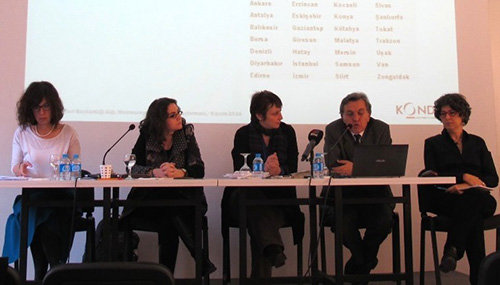
We organized a workshop in Gaziantep under the scope of our project "Regional Administration / Local Democracy" to discuss regional industrial policies in southeastern Turkey.
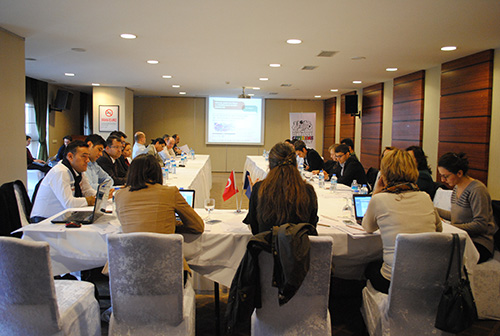
We organized the "Human Security and Citizenship" conference, with international participants, at Istanbul Bilgi University on 23-25 January 2015.
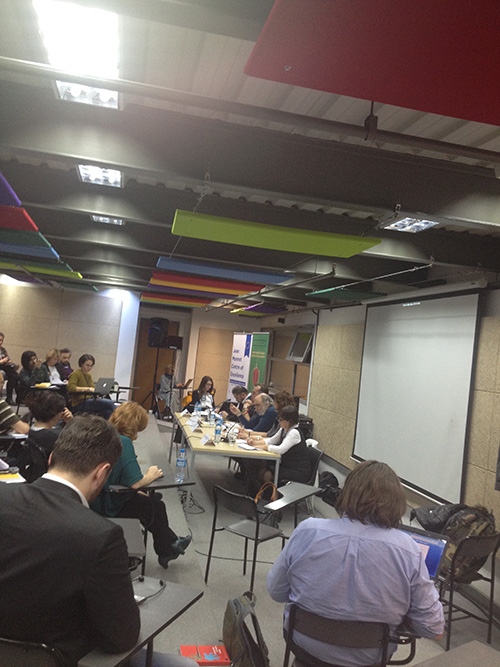
We organized a workshop in Samsun within the framework of our project on "Regional Administration / Local Democracy" in Central Black Sea region to discuss the possible negative effects of the logistic village project planned for the agricultural land in Tekkeköy.
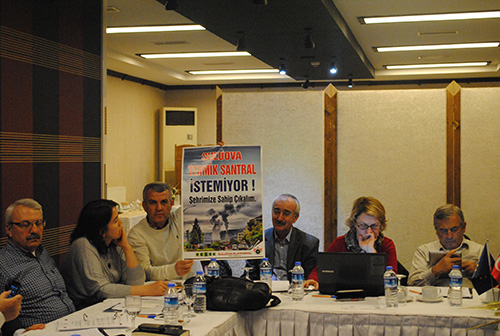
Within the scope of our work on “Regional Administration / Local Democracy", we initiated a working session to discuss the extent to which relations between public administration - municipality and citizens is open to participation, held via Dicle Valley in Diyarbakır.
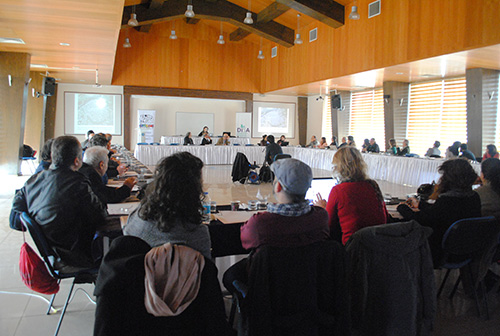
We held a meeting in Konya in February 2015, within the scope of our "Regional Administration / Local Democracy" project, in which we discussed drought in the Central Anatolian region in detail.
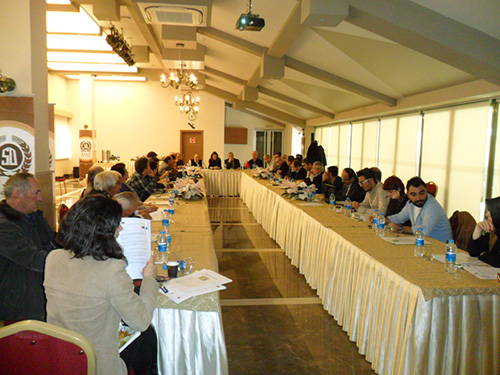
Within the scope of the "Regional Administration / Local Democracy" project, we discussed the role of citizen participation in regional policy and investment decision making and the controversial nuclear power plant project planned to be carried out in Akkuyu. The discussion was held in Mersin on 28 March.
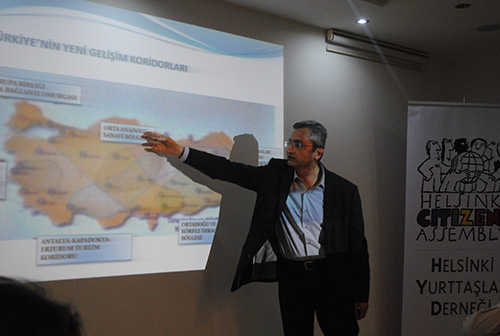
We organized a working meeting in Adıyaman to discuss the issue of women employment.
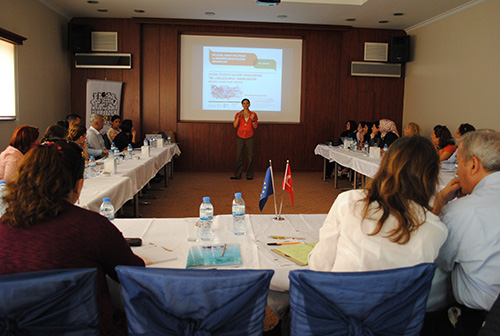
We held a workshop in Mardin in which we discussed the pros and cons of the effects of the Sustainable Tourism Project regarding the historical city center of Mardin in May.
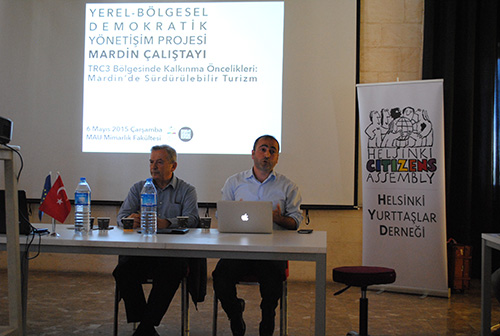
We carried out the "Yavaş Gamats - Slowly" Summer Workshop in the city of Aghveran, Armenia, in July, in partnership with the hCa Vanadzor Office.
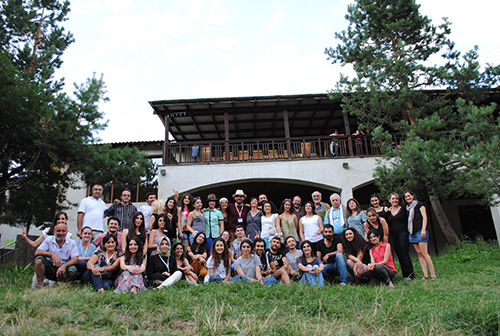
We held our second international summer school within the context of our "Human Security" project in Pristina on 5-11 August.

We held two separate working meetings in Istanbul within the "Human Security" project on September 19 and November 28. The titles of the meetings were "Human Security in the Axis of Social Welfare and Policies in Turkey" and "Youth in the Context of Human Security in Turkey".
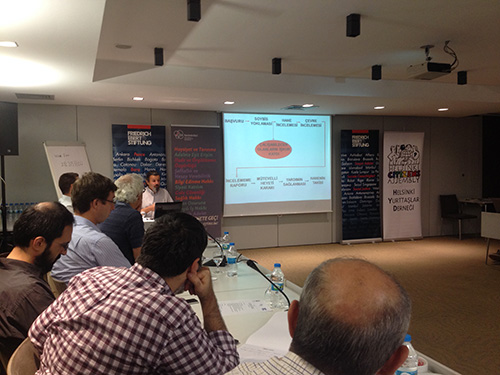
We published a book, "Human (in)Security in Turkey" (Türkiye'de İnsani Güven(siz)lik), compiling the outputs of field work we carried out between 2014 and 2015 on various aspects of human security issues in Turkey.
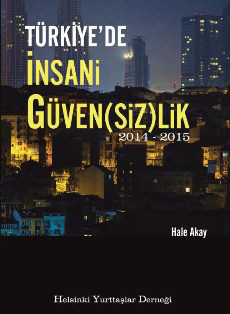
The first edition of our quarterly journal Saha was published under the scope of our Human Security project in the last quarter of 2015.
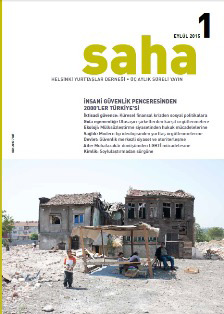
We discussed the nuclear power plant planned to be built in İnceburun in Sinop at the second meeting of our "Regional Administration / Local Democracy" work in Central Black Sea.
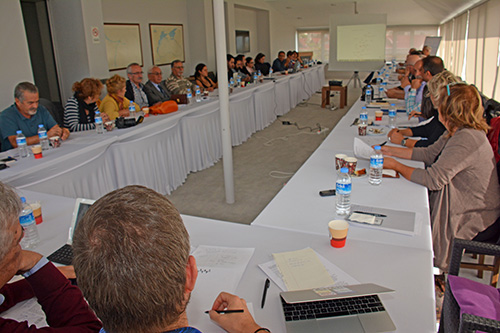
We carried out the "Yavaş Gamats - Slowly" Fall Workshop, in partnership with the hCa Vanadzor Office in Armenia, on 18-22 November in Dilijan/Armenia.
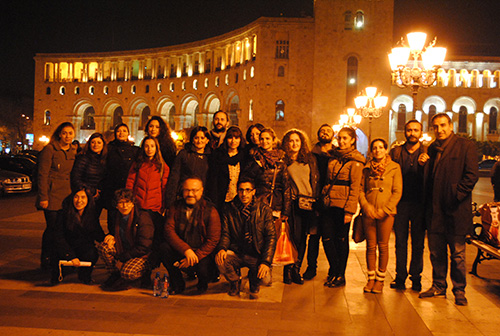
We discussed the problems and demands of Syrian refugees within the scope of the "Regional Administration / Local Democracy" project, during a second workshop in Istanbul.
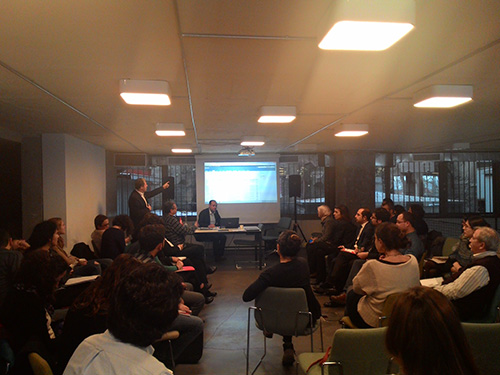
The second meeting of our "Regional Administration / Local Democracy" project, focusing on the problem of drought in the Central Anatolia region, was held in Nevşehir in December.
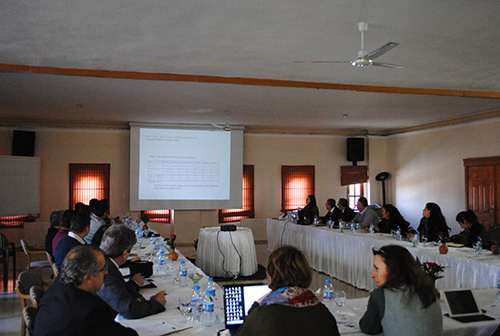
The last of our local meetings with the project "Regional Administration / Local Democracy" took place in Adana, where we discussed the changing dynamics of migration in the Cukurova region.
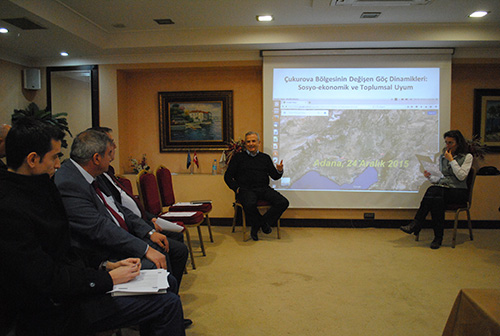
In 2015, we conducted a study to evaluate compulsory religious courses from a legal and administrative point of view, reviewing the religious courses in the European countries’ education systems, the changes that the religion course has undergone from the time of the foundation of the Republic, and the pedagogical aspect of religious lessons. At the end of the first year of this study we published a report entitled "Compulsory Religious Education in Turkey: Where Citizen Meets the State".
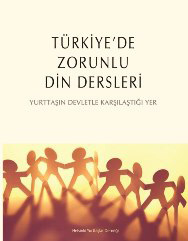
We published the book “The Role of Religious Schooling in the Educational System” (Eğitim Sisteminde Din Öğretiminin Rolü), enriched by the experiences and the lessons learnt from earlier work carried out on the religion-state-citizen axis “Practicing Secularism in Everyday Life”, “We are Discussing Presidency of Religious Affairs”, "Compulsory Religious Education in Turkey: Where Citizen Meets the State”. The book is intended to create the basis for a public debate within the framework of the policies and practices of religious education in Turkey.
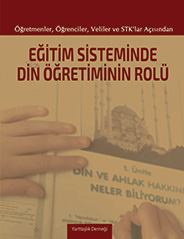
We started the first phase of our project "Teacher Support Program" which was intended to last 6 months, with the aim of supporting teachers in order to increase their ability to cope with the challenges of social integration of refugee and immigrant children to their new lives in Turkey. The 14-weeks program included educators who worked with migrant children in their classrooms.
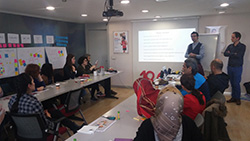
Our Human Security study, which we conducted with six different organizations from the Western Balkans, was concluded with a regional scale "Human Security Network Conference" held in Athens on 23-25 February 2017.
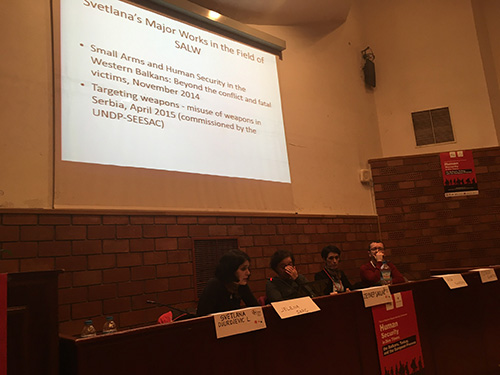
We designed a 30-minutes program called "Citizen Post", broadcast once a week on the internet TV 'MedyaScope TV', in order to expand the perspectives and debates on state-citizen relations and social peace issues. We made efforts to reach a broader audience by emphasizing the need to deal with these issues from the context of citizenship through broadcasts prepared by one of our members Emine Uçak, and broadcast with a different guest every week.
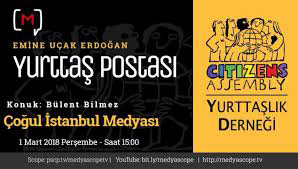
We published our bilingual book, “Civil Society and Syrian Refugees in Turkey” (Türkiye'de Sivil Toplum ve Suriyeli Mülteciler) in April 2017. This was a compilation of the results of our survey, carried out throughout the year 2016, which aimed to understand the scope of civil support provided to Syrian refugees in Turkey.
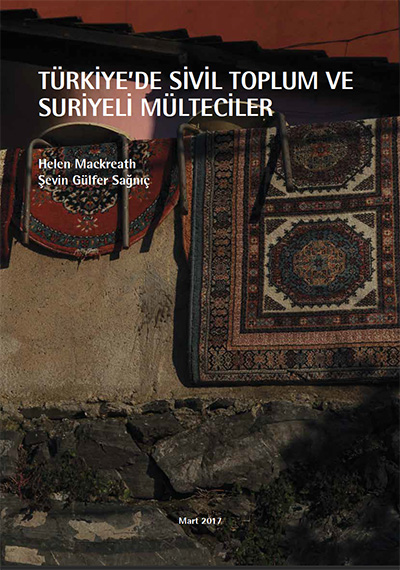
In May 2017 we published the results of our short term field study, which was carried out in the last months of 2016, under the title “The Inventory Report On The Integration Of The Syrian Refugees To The Civilian Life In Turkey” (Suriyeli Mültecilerin Türkiye’deki Sivil Hayata İntibakına Yönelik Envanter Çalışması). The study aimed at determining the major problems that Syrian refugees are facing in Turkey, and the adequacy of the solutions generated in response to these problems.
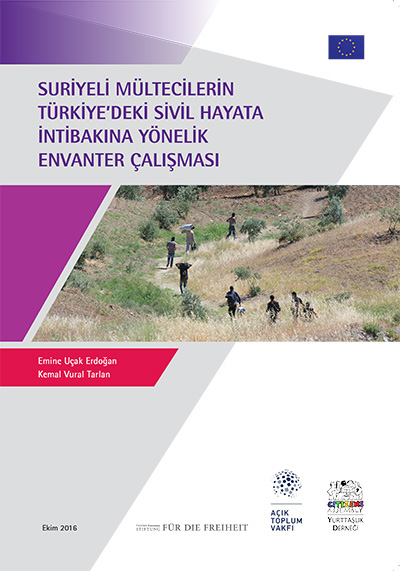
Ten representatives from various human rights organizations, including members of hCa, were detained in Istanbul Büyükada on 5 July 2017 at a working meeting. On the first hearing on October 30, some of them were released, the remaining representatives being released later. During this period we campaigned in solidarity with the other organizations and have tried to draw public attention to the brutality of the accusations.
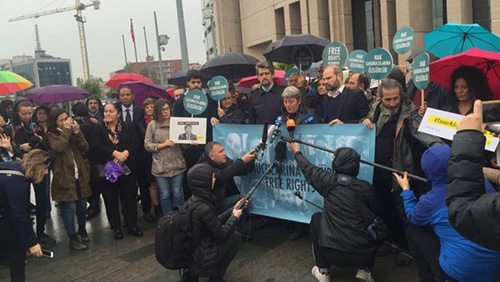
We started the three-month-long second phase of our "Teacher Support Program". Unlike the first phase, which included face-to-face seminars and training studies, the second phase aimed at reaching a wider geographical coverage by taking advantage of our online education systems.
